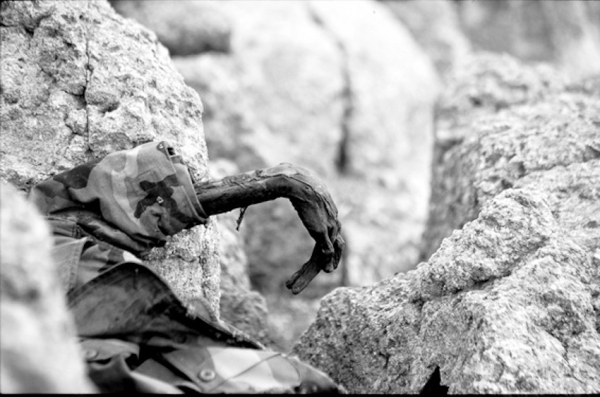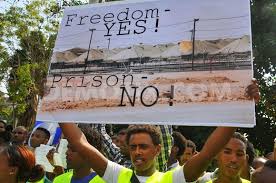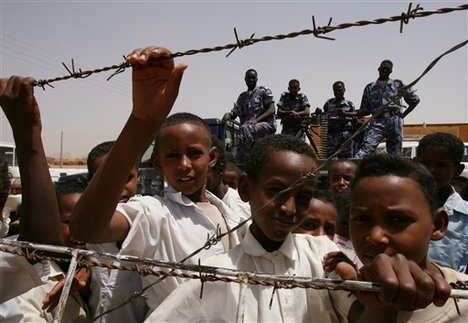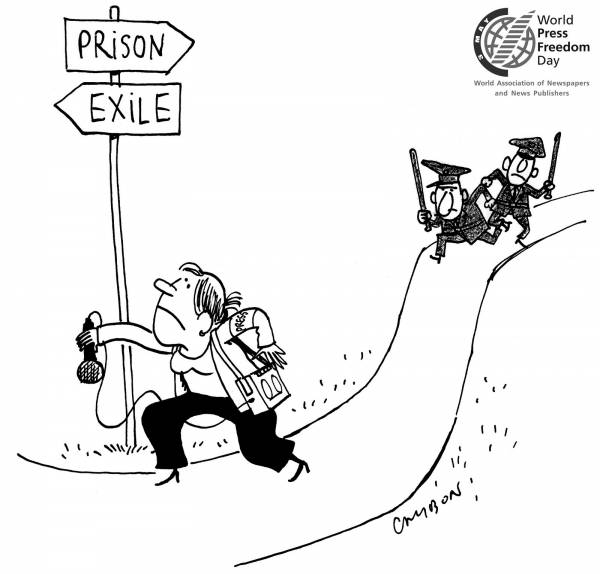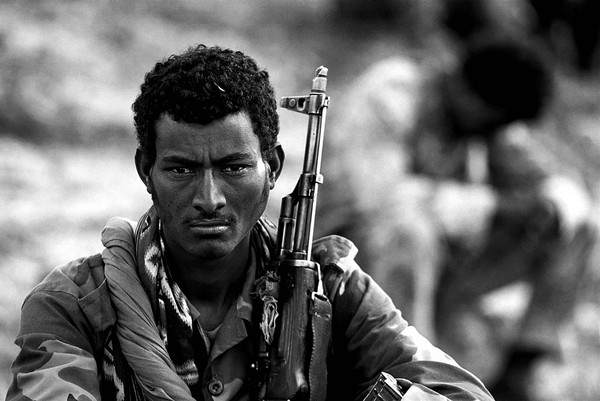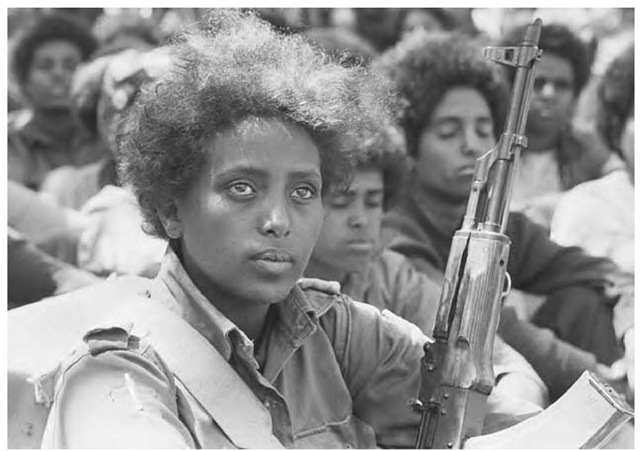This is a comment on Voice of America – Eritrea –
interview of Ms Bronwyn Bruton
Deputy Director Africa Centre
(Atlantic Council – Washington)
On 27 April 2015 Voice of America broadcast an interview with Ms Bronwyn Bruton. Ms Bruton is the Deputy Director of the Africa Centre at the Atlantic Council a think tank. Her area of expertise is Al Shabaab, Al-Qaeda in the Maghreb, Piracy, and Violent Extremism focusing in the following countries: Kenya, Somalia, and Sudan.
[embedplusvideo height=”361″ width=”590″ editlink=”http://bit.ly/1byA08w” standard=”http://www.youtube.com/v/824tsZXWgGE?fs=1&vq=hd720″ vars=”ytid=824tsZXWgGE&width=590&height=361&start=&stop=&rs=w&hd=1&autoplay=0&react=1&chapters=¬es=” id=”ep2299″ /]
The interview follows a recent visit to Eritrea by Ms Bronwyn Bruton where she had the opportunity to meet and interview President Isaias Afeworki over a period of at least 3 hours . Earlier this year the BBC was also able to travel to Eritrea and produced a documentary – Inside Secretive Eritrea. http://www.bbc.com/news/world-africa-31851587
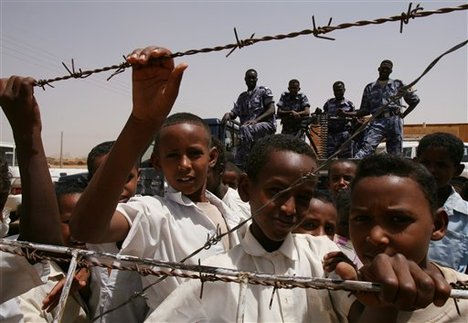 The message being conveyed by Ms Bruton is that USA should re-engage with the Government of President Isaias because given the current situation in the area , specifically the escalating conflict in Yemen, re engagement is in the best interest of the USA. To achieve this goal the situation and the concerns of the Eritrean people under the regime of President Isaias are reduced to an issue of economics and availability of jobs following of the Full Belly principle of Governance ignoring that in fact the policies of the Eritrean Government have in fact deliberately destroyed the private sector in Eritrea and specifically the Eritrean private sector .
The message being conveyed by Ms Bruton is that USA should re-engage with the Government of President Isaias because given the current situation in the area , specifically the escalating conflict in Yemen, re engagement is in the best interest of the USA. To achieve this goal the situation and the concerns of the Eritrean people under the regime of President Isaias are reduced to an issue of economics and availability of jobs following of the Full Belly principle of Governance ignoring that in fact the policies of the Eritrean Government have in fact deliberately destroyed the private sector in Eritrea and specifically the Eritrean private sector .
Ms Bruton reports that President Isaias has already taken steps to address issues of National Service and Governance by:
(a) demobilising 100,000 Eritreans;
(b) taking steps to start the drafting process for a new constitution;
(c) releasing 6 journalist early in 2015
We have a Constitution, at time it was drafted the process was participatory. The existing Eritrean Constitution does aspired to implement the principles of Human Rights. The Constitution was ratified in 1997 and since then the Government of Eritrea has refused to implement it. It is clear that at some point the people of Eritrea, based on their experience with the current regime, will want to revise and amend the Constitution. Because of the experience of the last 23 years, the process of amending the Constitution cannot be led by the very people who have, deliberately sabotaged it and repeatedly told us that “the Constitution is dead” and “ Forget about democratic elections”.
Twenty years ago, the release of 6 journalists, might have been a positive step. Today it is not. Today it is simply another game of mirrors and smoke screen that is being played on the Eritrean people by the Government. It does not provide the answers that we want. To date there is no willingness from the Eritrean Government to tell us where all the other people it has arrested are. Nor is there a willingness of the Eritrean Government to apply the principles of Human Rights to the political prisoners it has arrested. For it to be a good start at the very least the following should happened: (a) Families should be informed as to the status of the prisoners; (b) ICRC or similar international organisation should be given access to the prisoners to assess their situation; (c) all political prisoners should be released. NO Ms Bruton 6 Journalists released early in 2015 is a drop in the ocean and NO it is not a good start far from it.
The statement that 100,000 Eritreans have been quietly demobilised does not match the reality on the ground. The reality is that since mid-2014, the Government has recalled to the national service those fighters it had demobilised on medical ground and has extended the requirement to do national service up to 65 years of age.
The response to the new call for mobilisation has been so poor as to be virtually zero. This is big blow to the pride of the President on many levels not the least of which the fact that we are now talking about his peers refusing to report for national service. Typically the Government has reacted to the dissent with threats and in the areas where there has been the deepest dissent we are now seeing un precedent demolishing of houses reminiscent of occupied Palestine .
Ms Bruton suggests that there is a link between the supposed demobilisation and the recent threefold increase in the number of Eritrean Refugees. This suggestion is insensitive to the plight of the Eritrean people and ignores the fact that the threefold increase is in the number of unaccompanied minors ( i.e. not people of military age ). The continued affirmation that Eritreans are leaving their country primarily for economic reasons ignores the mounting evidence of denial of human rights, abuses, torture and disappearances practices by the Eritrean Government on those who dare to voice dissent and in particular on the youth.
Contrary to what president Isaias Afeworki may think there is a need for Reform in Eritrea. The very fact that the President is not able to admit that he has done something wrong is a problem as it means that he is not able to make any changes and what we as Eritreans can expect from him is more of the same .
On the issue of border dispute with Ethiopia it is important to note that in accordance with the decision of the Border Commission though Eritrea has been allocated the symbolic town of Bademe it has actually lost control of territories in the areas of Alitena and Tsorona. Though the Eritrean people know of the loss of the territories this information has not been communicated officially. Also to date there has been no proper accounting to the Eritrean people of how Eritrea plummeted into war with Ethiopia and specifically how it was that during the third round of fighting many of our soldiers ran out of bullets, were ordered to abandon Assab (something they refused to do) and Ethiopian forces managed to be in control of large parts of the country. These were questions that the G15 specifically wanted to address and to this date are not addressed.
It is true that the International Community made a mistake in 2002 by not putting greater pressure on Ethiopia to fully implement the decision of the Boundary Commission. Within the context of Eritrea, this contributed to the further entrenching of an Eritrean narrative of Eritrea alone and a victim of the International Community and specifically of the USA. It would however be completely naïve to believe that this was the only reason for the deterioration of relationships between the International Community and Eritrea.
It takes two to tango and irrespective of who is right and who is wrong it takes dialogue and diplomacy to resolve conflict. In the context of the border decision, the official position of the Eritrean Government has been that there is nothing to discuss. (International Crisis Group Report No 68, 24 September 2003 pg. 8).
During an interview with Dan Connell (August 2001) Mr Petros Solomon ( Former Minister of Foreign Affairs ) explained that an internal assessments carried out by the Eritrean Ministry of Foreign Affairs, of the socio –political landscape around Eritrea clearly indicated that Eritrea could not afford to be involved in conflicts with Ethiopia, Yemen, and Djibouti. To date Eritrea has been involved in disputes with all the countries named. During the interview Mr Petros Solomon voiced the opinion that a key problem for Eritrea was the fact that there were no institutions strong enough to contain president Isaias (Dan Connell – Conversations with Eritrean Political Prisoners – Trenton 2005) .
The shrinking political space as evidenced by the crackdown in 2001, the deteriorating human right situation has made it impossible to engage in any internal discussion as to how best to negotiate with Ethiopia and engage with the International Community. The result is that Eritrea has had only a hard-line approach to diplomacy that is not able to take into account the wider picture of interests beyond the self.
After September 11, 2001 there was a window of opportunity for the thawing of Eritrea, USA relationship. Eritrea (like Ethiopia ) joined the coalition in the build-up of the war against Iraq however even then the USA had concerns about the volatility of the President and the Human Rights issues within Eritrea . The issue was made worse by the arrest of Eritreans working for the USA embassy Ali Alamin and Kiflom Gebre Michael both working in the political and economic affairs office at the embassy. These men have not been heard from since. http://news.bbc.co.uk/2/hi/africa/1600689.stm
The hard line approach to foreign policy and international relationships continued to be in evidence in 2005 when the Government of Eritrea , in attempt to have its voice heard over the issue of Bademe, started to arrest more Eritreans staff working for the USA embassy (Mr Fitwi Gezae – webmaster at the USA embassy and Mr Biniam Girmay – Facility Management), and ordering the closure of USAID, as well impounding approximately 120 vehicles from both the UN and NGO’s.
The fact that the USA Government continues to ask about their Eritrean staff is not trivial and it is not pride it is an act of Solidarity that should be supported and that should continue. http://news.bbc.co.uk/2/hi/africa/4186728.stm ; http://mg.co.za/article/2005-08-31-eritrea-says-usaid-banning-is-irreversible; http://www.sudantribune.com/spip.php?article11635.
In addition it is important to remember that the relationship between Eritrea and USA further deteriorated as a result of Eritrean Government treatment of Ambassador Ronald K Mc Mullen . During the whole of his term in Eritrea (2007 to 2010), Ambassador Mc Mullen was never able to present his credentials but he was never actually refused as an Ambassador. The result was that he was not able to fulfil his role as Ambassador. Which country would allow its representative to be treated in such a way?
Following the experience of the USA government with the deployment of Ambassador Ronald McMullen the inclination of the USA government was to close the whole mission in Eritrea. However they were persuaded to maintain a presence, specifically because of the strategic geo – political position of Eritrea accordingly the USA has maintained presence. The current USA Charge d’ affair is Ms Sue Bremner. This should be sufficient presence and engagement in Eritrea until such time as there is Reform in Eritrea.
Since 2001, the Eritrean Government has disengaged from a number of important regional forums namely IGAD, African Union, COMESA to name a few. Though the Eritrean Government had legitimate grievances against the forums by disengaging it has ensured it isolation and the continued misery and isolation of the Eritrean people. Though Eritrea has returned to both IGAD and the African Union, their presence in these for a fragile.
As both Ms Bruton and Mr Peter Heinlein mentioned during the interview the Ethiopian government is in fact more adept at navigating the waters of international diplomacy and thus is able to create a space in the international arena for its people. Eritrea should learn from this.
In 2009 with UN resolution No 1907, the UN imposed sanctions on Eritrea for aiding Al Shabaab. The resolution was tabled by Uganda and Burkina Faso and was adopted with 13 votes, with Libya voting against it and China abstaining. Resolution 1907 put in place an arms embargo and travel bans on some of the Eritrean leaders. The resolution also deals with the conflict in Djibouti requiring the Eritrean Government to withdraw from Djibouti territory and to account for Prisoners of War.
By December 2011 the UN Security Council issue Resolution No 2023. This resolution targeted the ore mining companies essentially requiring them to ensure that funds from the sector are not used to destabilize the area. This resolution was adopted by 13 votes – China abstaining.
Neither of the two resolutions imposing sanctions on Eritrea targets the general population. The economic difficulties of the Eritrean population are not due to the sanctions, they are due to the economic policies of the Eritrean Government that have nationalised human resources and sought to control all sectors destroying the Eritrean private sector and basically distorting international investment. In fact the general population in Eritrea has been suffering and is suffering from an internal government driven embargo on the people.
Within the current context of Eritrea of repression of the people by the Government and specifically the policy of using cheap national labour, it is fair that any international investor implement due diligence steps to make sure that their intervention does not entrench the situations. In the case of the mining companies from Australia and Canada this complimentary to already existing national ( i.e. Australian and Canadian ) legislation that requires them to apply Canadian and Australian standards on matter of environment and human resources.
Though, as Ms Bruton mentions in her interview , that Eritrea is not a driver of the Somalia conflict, she fails to mention that Eritrea has been and has the capacity to continue to be act as a spoiler in the Horn of Africa. It is interesting to note that according to Itrace:
- The known suppliers of weapons to the State of Eritrea are: Peoples Republic of Bulgaria 46.2%; Peoples Republic of China 38.5%; Romania 7.70%; Russia Federation 7.7
- 27.3 % of weapons in the possession of the State of Eritrea are diverted to third parties; and
- 92.3 % of the diversion of weapons from Eritrea is done by the State itself
https://itrace.conflictarm.com/
On the issue of the sanctions that have been imposed on Eritrea, the real question is why sanctions were not imposed on the Government of Eritrea for Human Right abuses? Accordingly on this issues there is presently a wide engagement of Eritrean Human Right organisations engaging with the UN Human Right Rapporteur.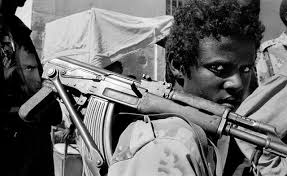
Resolution 2023 specifically condemns the use of the 2 per cent tax as a tool of destabilisation in the region. http://www.bbc.com/news/world-africa-16043561 The 2 per cent tax is not the only tax being charged by the Eritrean Government on Eritreans living abroad. Taxes get added on an ad hoc basis and taxes can be charged retroactively on both the communities living abroad as well as those living in Eritrea.
It is now more than twenty years since the formation of the modern State of Eritrea and in this time the Eritrean Government has made no effort to make formal arrangements for taxation by entering into reciprocal tax agreements or similar arrangements with major countries of the Eritrean Diaspora. Such arrangement would make the charging and payment of taxes transparent and accountable and would offer citizens protection. Instead the Eritrean Government has continued to operate in a semi-clandestine manner.
The present arrangement of collecting taxes does not have any regard as to source of income of the individuals – therefore Eritreans receiving social benefits from their host countries are paying 2 per cent . Failure of family members to pay 2 per cent tax impacts on Eritreans at home in a number of ways but specifically by having their legitimate activities blocked or suspended. I am sure that in the USA if you do not pay taxes, unless there is evidence of collusion, your family is not penalized.
The 2 per cent and other taxes paid by the diaspora are paid in foreign currency not to the tax office but to the Embassy and there is no evidence that the funds are ever repatriated. It is not possible to pay the 2 per cent tax in Eritrea in Nackfa. Under the current arrangement it is likely that funds are diverted for purpose other than the purpose for which they were collected. A view that is encouraged by the continuation of the guerrilla style of administration and the fact that there is no accounting for the tax collected by the Eritrean Government.
Finally to engage with the Government of Eritrea in the absence of any real Reforms is in fact to act to the detriment of the Eritrean people and possibly the whole region. While it is important to maintain presence in Eritrea, time would be better spent trying to understand and engage with the Eritrean leadership that is emerging from the refugee camps, and the sinking boats and that s is presently engaging with the UN and other international bodies on Eritrean issues.
Makeda Saba
makedasaba@ymail.com


